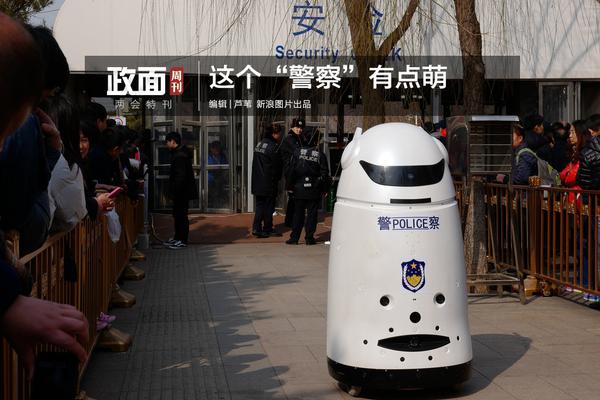
Short-term memory, long-term memory. Cognitive psychology regards memory as the process of coding, storing and extracting input information by the human brain. Memory is divided into three systems: instantaneous memory, short-term memory and long-term memory, which is based on the different ways of encoding, storing and extracting information, as well as the different length of information storage time.
What are the three memory systems: memory is also regarded as the process of the human brain encoding, storing and extracting input information, and according to the different ways of coding, storing and extracting information, as well as the different length of information storage time, memory is divided into instantaneous memory, short-term memory and long-term memory. A system.
What are the three memory systems? According to the different ways of encoding, storing and extracting information, and the different length of information storage time, memory is divided into three systems: instantaneous memory, short-term memory and long-term memory.
The three stages of memory are sensory memory, short-term memory and long-term memory. Sensory memory: Sensory memory refers to the information we receive through various sensory organs, such as vision, hearing, touch, taste and smell.
What are the three memory systems? According to the different ways of coding, storage and extraction of information, and the different length of information storage time, memory is divided into instantaneous memory, short-term memory and long-term memory. Remember the three systems.
The coding method of instantaneous memory, that is, the way instantaneous memory remembers information, is the image of external stimuli. Because the information of instantaneous memory is first registered in the sensory channel in the form of sensory images, instantaneous memory has a distinct image. The capacity of instantaneous memory is large, but the retention time is very short.
Perception is the cognitive process of giving meaning through information. ( 2) Working memory. It is the memory of processing and encoding information in the human brain within a minute. The holding time is about 5 seconds to 1 minute. Short-term memory also includes direct memory and working memory.

Weber's score), which is only applicable to medium-intensity stimuli, which is different from the Weber's score of sensory organs (2) Fechner's Law: 1860, using the differential threshold as the unit of sensation, a stimulus was measured. The difference threshold contained is believed to be the psychological intensity caused by this stimulus.
The concept of memory is the psychological process of accumulating, preserving and extracting individual experience in the mind.From storing into the brain to extracting and applying again, this complete process is collectively called memory.
Long-term memory refers to the memory maintained for more than a minute after external stimuli appear in a very short time. Features: The capacity of memory is unlimited, whether it is the type or quantity of information. Coding Semantic coding: Use words to process information and organize coding according to the meaning of the material.
Memory and memory process Definition: It is the reaction of past experience in the mind. Past experience refers to the perception of things, thinking about problems, the emotional experience caused by things, and the actions that have been carried out in the past. Function: It is the root of wisdom and the cornerstone of psychological development.
OKX Wallet download-APP, download it now, new users will receive a novice gift pack.
Short-term memory, long-term memory. Cognitive psychology regards memory as the process of coding, storing and extracting input information by the human brain. Memory is divided into three systems: instantaneous memory, short-term memory and long-term memory, which is based on the different ways of encoding, storing and extracting information, as well as the different length of information storage time.
What are the three memory systems: memory is also regarded as the process of the human brain encoding, storing and extracting input information, and according to the different ways of coding, storing and extracting information, as well as the different length of information storage time, memory is divided into instantaneous memory, short-term memory and long-term memory. A system.
What are the three memory systems? According to the different ways of encoding, storing and extracting information, and the different length of information storage time, memory is divided into three systems: instantaneous memory, short-term memory and long-term memory.
The three stages of memory are sensory memory, short-term memory and long-term memory. Sensory memory: Sensory memory refers to the information we receive through various sensory organs, such as vision, hearing, touch, taste and smell.
What are the three memory systems? According to the different ways of coding, storage and extraction of information, and the different length of information storage time, memory is divided into instantaneous memory, short-term memory and long-term memory. Remember the three systems.
The coding method of instantaneous memory, that is, the way instantaneous memory remembers information, is the image of external stimuli. Because the information of instantaneous memory is first registered in the sensory channel in the form of sensory images, instantaneous memory has a distinct image. The capacity of instantaneous memory is large, but the retention time is very short.
Perception is the cognitive process of giving meaning through information. ( 2) Working memory. It is the memory of processing and encoding information in the human brain within a minute. The holding time is about 5 seconds to 1 minute. Short-term memory also includes direct memory and working memory.

Weber's score), which is only applicable to medium-intensity stimuli, which is different from the Weber's score of sensory organs (2) Fechner's Law: 1860, using the differential threshold as the unit of sensation, a stimulus was measured. The difference threshold contained is believed to be the psychological intensity caused by this stimulus.
The concept of memory is the psychological process of accumulating, preserving and extracting individual experience in the mind.From storing into the brain to extracting and applying again, this complete process is collectively called memory.
Long-term memory refers to the memory maintained for more than a minute after external stimuli appear in a very short time. Features: The capacity of memory is unlimited, whether it is the type or quantity of information. Coding Semantic coding: Use words to process information and organize coding according to the meaning of the material.
Memory and memory process Definition: It is the reaction of past experience in the mind. Past experience refers to the perception of things, thinking about problems, the emotional experience caused by things, and the actions that have been carried out in the past. Function: It is the root of wisdom and the cornerstone of psychological development.
Binance app download Play Store
author: 2025-01-23 04:49 OKX Wallet
OKX Wallet
134.42MB
Check okx.com login
okx.com login
453.36MB
Check OKX Wallet download
OKX Wallet download
237.59MB
Check Binance app
Binance app
514.43MB
Check OKX Wallet to exchange
OKX Wallet to exchange
446.37MB
Check Binance login
Binance login
324.15MB
Check Binance download APK
Binance download APK
242.91MB
Check OKX Wallet download
OKX Wallet download
595.91MB
Check Binance login App
Binance login App
578.11MB
Check Binance wallet
Binance wallet
255.54MB
Check OKX Wallet app
OKX Wallet app
825.97MB
Check OKX Wallet apk download
OKX Wallet apk download
921.48MB
Check OKX Wallet download
OKX Wallet download
997.48MB
Check Binance US
Binance US
481.11MB
Check Binance download APK
Binance download APK
448.42MB
Check Binance login
Binance login
477.44MB
Check OKX Wallet APK
OKX Wallet APK
723.63MB
Check Binance US
Binance US
326.51MB
Check Binance APK
Binance APK
479.36MB
Check Binance exchange
Binance exchange
696.68MB
Check OKX Wallet login
OKX Wallet login
175.61MB
Check Binance login App
Binance login App
268.57MB
Check Binance login
Binance login
139.56MB
Check Binance APK
Binance APK
845.95MB
Check OKX review
OKX review
858.28MB
Check Binance download
Binance download
821.71MB
Check OKX Wallet login
OKX Wallet login
568.83MB
Check Binance download Android
Binance download Android
664.84MB
Check Binance login
Binance login
481.97MB
Check OKX Wallet download
OKX Wallet download
957.34MB
Check Binance login
Binance login
662.17MB
Check OKX Wallet app
OKX Wallet app
173.28MB
Check OKX Wallet
OKX Wallet
113.39MB
Check Binance login App
Binance login App
928.96MB
Check OKX Wallet APK
OKX Wallet APK
288.48MB
Check Okx app download
Okx app download
126.55MB
Check
Scan to install
OKX Wallet download to discover more
Netizen comments More
2507 一枕南柯网
2025-01-23 04:16 recommend
1349 眠花卧柳网
2025-01-23 04:10 recommend
1852 弃若敝屣网
2025-01-23 03:37 recommend
2735 阿鼻地狱网
2025-01-23 02:31 recommend
2181 是非分明网
2025-01-23 02:30 recommend